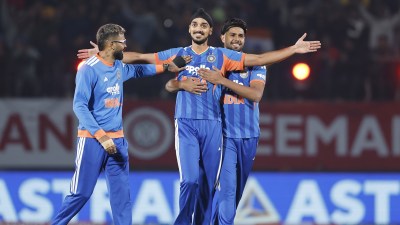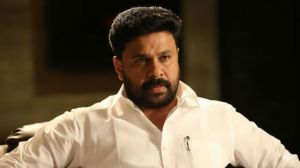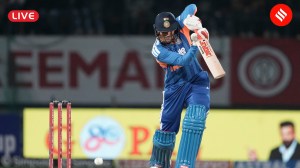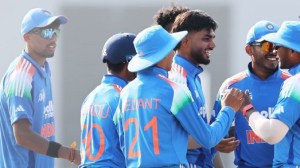
Question 1
With reference to Paris Club, consider the following countries:
1) Australia
2) Canada
3) India
4) Russia
5) China
6) Israel
Which of the above countries are the members of Paris Club?
(a) 1, 2, 3, 4 and 5 only
(b) 1, 2, 4 and 6 only
(c) 2, 4, 5 and 6 only
(d) 1, 2, 3, 4, 5 and 6
Question 2
Additional surveillance mechanism (ASM) seen in news relates to:
(a) Defense and Security
(b) Artificial Intelligence and Cyber Security
(c) Share prices and Market volatility
(d) Space debris mechanism
Question 3
With reference to ‘Green Deal Industrial Plan’, consider the following statements:
1) Unveiled by United States it aims to expand its green industry, cut red tape and provide massive subsidies in the trade sector.
2) It counters European Union’s Inflation Reduction Act (IRA).
Which of the above statements are correct?
(a) Only 1
(b) Only 2
(c) Both 1 and 2
(d) Neither 1 nor 2
Story continues below this ad
Question 4
With reference to President’s address to Parliament, consider the following statements:
1. In India, the practice of the President addressing Parliament was established after the promulgation of the Government of India Act in 1919.
2. Article 87 provides two special occasions on which the President addresses a joint sitting.
3. In 1951, the First Amendment to the Constitution made the President’s address an annual affair.
Which of the above statements are correct?
(a) Only 1
(b) 2 and 3 only
(c) 1, 2 and 3
(d) None of the above
Story continues below this ad
Question 5
Seen sometimes in news “Apoptosis” is the process related to
(a) Cell biology
(b) Archaeology
(c) Quantum Physics
(d) Micro Economics
Question 6
With reference to Joint Parliamentary Committee (JPC), consider the following statements:
1) It is set up by the Parliament for a special purpose, like for the detailed scrutiny of a subject or Bill.
2) Recommendations of a JPC are binding on the government.
3) It has members from both the Houses excluding the ruling parties.
Which of the above statements are incorrect?
(a) Only 1 and 2
(b) Only 2 and 3
(c) Only 2
(d) Only 3
Story continues below this ad
Question 7
‘The light has gone out of our lives’ is the iconic speech of:
(a) Mahatma Gandhi
(b) Jawaharlal Nehru
(c) Rajendra Prasad
(d) Rabindranath Tagore
Question 8
With reference to Muons, consider the following statements:
1. They are subatomic particles raining from space.
2. They are created when the particles in Earth’s atmosphere collide with cosmic rays.
Which of the above statements are correct?
(a) Only 1
(b) Only 2
(c) Both 1 and 2
(d) Neither 1 nor 2
Question 9
With reference to the January update of World Economic Outlook, consider the following statements:
1) It expects global growth to bottom out in 2023 before starting to gather speed in 2024.
Story continues below this ad
2) It expects disinflation (the fall in inflation rate) to be slow and take all of 2023 and 2024.
3) It predicts India to stay the world’s fastest growing major economy in 2023 and 2024.
Which of the above statements are correct?
(a) 1 and 2 only
(b) 2 and 3 only
(c) 1 and 3 only
(d) 1, 2 and 3
Question 10
The Gerber method determines:
(a) protein percent in milk
(b) purity of water
(c) soil health profile
(d) none of the above
CSAT Comprehension
Read the following passage and answer the item that follow the passage. Your answer to the item should be based on the passage only.
The future is bright for ChatGPT and other AI bots like it. However, while we will clearly embrace it for all that it offers by way of quick and succinct information, one must be careful about what it is allowed to replace. It is no substitute for thoughtful and careful research. Its findings cannot be relied on to substitute the judgment of a lawyer, doctor or engineer or other professionals. Finally, it might also start eliminating junior-level positions in fields like law, architecture, coding and research-oriented jobs. Historically, the use of advanced machines in the manufacturing sector reduced the number of human workers needed and hence led to a consistent reduction of jobs in that sector. Similarly, the future of white-collar work will see a reduction in the number of humans necessary as AI will steadily replace them. And, herein lies the challenge for countries like India where unemployment is already high. How does one ethically deploy AI, while trying not to eliminate too many humans from the job market? Or is the inevitable future colleague a chatty bot?
Question
Story continues below this ad
Based on the above passage, the following assumptions have been made:
1. AI bots are so reliable that it is beneficial to replace humans by them.
2. In countries with high unemployment, deployment of AI is not a good idea.
Which of the above assumptions is/are valid?
(a) Only 1
(b) Only 2
(c) Both 1 and 2
(d) Neither 1 nor 2
(Source: Menaka Guruswamy writes: AI chatbot, my future colleague)
ANSWERS TO MCQs
1 (b)
The Paris Club, an informal group of creditor nations, will provide financial assurances to the International Monetary Fund on Sri Lanka’s debt, Reuters has reported quoting two unnamed sources.
India and China are not its members.
FYI
What is the Paris Club?
Story continues below this ad
The Paris Club is a group of mostly western creditor countries that grew from a 1956 meeting in which Argentina agreed to meet its public creditors in Paris. Their objective is to find sustainable debt-relief solutions for countries that are unable to repay their bilateral loans.
It describes itself as a forum where official creditors meet to solve payment difficulties faced by debtor countries. All 22 are members of the group called Organisation for Economic Co-operation and Development (OECD).
The members are: Australia, Austria, Belgium, Brazil, Canada, Denmark, Finland, France, Germany, Ireland, Israel, Italy, Japan, Korea, Netherlands, Norway, Russian Federation, Spain, Sweden, Switzerland, United Kingdom, United States of America.
2 (c)
Share prices and Market volatility.
The National Stock Exchange (NSE) on Thursday (February 2) placed Adani Enterprises, Adani Ports, and Ambuja Cements under the additional surveillance mechanism (ASM), Reuters reported. This means trading in their shares will require a 100% margin, which is aimed at curbing speculation and shortselling.
Story continues below this ad
The move comes as shares of Adani group companies continue to fall in the wake of accusations of stock manipulation and fraud levelled against the group by New York-based short seller Hindenburg Research.
FYI
What is additional surveillance mechanism (ASM)?
The ASM was introduced on March 26, 2018 with the intention to protect investors from market volatility and unusual changes in share price.
According to the National Stock Exchange (NSE) website, “In continuation to various surveillance measures already implemented, SEBI and Exchanges, pursuant to discussions in joint surveillance meetings, have decided that along with the aforesaid measures there shall be Additional Surveillance Measures (ASM) on securities with surveillance concerns based on objective parameters viz. Price / Volume variation, Volatility etc.”
The shortlisting of securities for placing in ASM is based on criteria that are jointly decided by the Securities and Exchange Board of India (SEBI) and exchanges, covering the parameters of “high low variation, client concentration, PE, close to close price variation, market capitalisation, volume variation, delivery percentage, and number of unique PANs”, the NSE FAQs say.
Put simply, an ASM shortlisting signals to investors that the stocks have seen unusual activity. The “shortlisting of securities under ASM is purely on account of market surveillance and it should not be construed as an adverse action against the concerned company / entity,” the FAQs say.
3 (d)
‘Green Deal Industrial Plan’ : EU
Inflation Reduction Act (IRA) : US
FYI
In a bid to support and expand its green industry, the European Union on February 1 revealed the “Green Deal Industrial Plan” that aims to cut red tape and provide massive subsidies. The move has come just a few months after the United States announced its Inflation Reduction Act (IRA), which contains billions of dollars of tax cuts for clean energy and climate change programs with incentives for US-based manufacturing.
4 (c)
All statements are correct.
FYI
Ahead of the Union Budget, President Droupadi Murmu on Tuesday addressed the joint sitting of Parliament for the first time after assuming the position in July 2022.
What is the history?
In the United Kingdom, the tradition of the monarch addressing the Parliament began in the 16th century. In the United States, President Gorge Washington addressed Congress for the first time in 1790. In India, the practice of the President addressing Parliament was established after the promulgation of the Government of India Act in 1919. This law gave the Governor-General the right of addressing the Legislative Assembly and the Council of State. The law did not have a provision for a joint address but the Governor-General did address the Assembly and the Council together on multiple occasions. Between 1947 and 1950, there was no address to the Constituent Assembly (Legislative).
After the Constitution came into force, President Rajendra Prasad addressed members of Lok Sabha and Rajya Sabha for the first time on January 31, 1950. The Constitution gives the President and the Governor the power to address a sitting of the legislature. Article 87 provides two special occasions on which the President addresses a joint sitting. The first is to address the opening session of a new legislature after a general election. The second is to address the first sitting of Parliament each year. A session of a new or continuing legislature cannot begin without fulfilling this requirement. When the Constitution came into force, the President was required to address each session of Parliament. So during the provisional Parliament in 1950, President Prasad gave an address before every session. In 1951, the First Amendment to the Constitution changed this and made the President’s address an annual affair.
5 (a)
FYI
Cancer cells can be thought of as cellular cheaters because they do not follow the rules of cooperative behavior. They mutate uncontrollably, evade cell death and take up excessive resources at the expense of the other cells. As these cheater cells replicate, cancer in the body begins to grow.
Cancer is fundamentally a problem of having multiple cells living together in one organism.
As such, it has been around since the origins of multicellular life. This means that cancer suppression mechanisms have been evolving for hundreds of millions of years to help keep would-be cancer cells in check. Cells monitor themselves for mutations and induce cell death, also known as apoptosis, when necessary.
6 (b)
Statements 2 and 3 are incorrect.
FYI
The Opposition on Thursday (February 2) joined hands to demand a probe either by a Joint Parliamentary Committee (JPC), headed by the Supreme Court or monitored by the Chief Justice of India, into the allegations of fraud and stock manipulation against the Adani Group.
What is a Joint Parliamentary Committee (JPC)?
A Joint Parliamentary Committee (JPC) is set up by the Parliament for a special purpose, like for the detailed scrutiny of a subject or Bill. It has members from both the Houses and from both the ruling parties and the opposition. It is dissolved after its term ends or its task has been completed.
A JPC is set up after one House of Parliament has passed a motion and the other has agreed to it. Members of the JPC are decided by the Parliament. The number of members can vary – there is no fixed number.
What can a JPC do?
According to an article on PRS Legislative Research, the mandate of a JPC depends on the motion constituting it. For example, “The terms of reference for the JPC on the stock market scam asked the committee to look into financial irregularities, to fix responsibility on persons and institutions for the scam, to identify regulatory loopholes and also to make suitable recommendations,” the PRS article said.
To fulfil its mandate, a JPC can scrutinise documents and summon people for questioning. It then submits a report and makes recommendations to the government.
How powerful is a JPC?
While the recommendations of a JPC have persuasive value, they are not binding on the government. The government can choose to launch further investigations based on what the JPC has said, but it can’t be forced to do so.
7 (b)
FYI
On January 31 in 1948, Mahatma Gandhi was shot dead. Gandhi had left his room at New Delhi’s Birla House for a prayer meeting, a little after 5 pm, running late. As he made his way through the crowd, a young man walked up and greeted him. Even as Gandhi replied, the man fired three bullets straight into the frail body.
The next few hours saw an outpouring of grief and confusion across the nation. At Birla House, crowds swelled, pressing at the gates. Jawaharlal Nehru, who had arrived only after his guru and mentor had breathed his last, came out to speak to the crowds. That speech has not been recorded. We know only that Nehru broke down thrice while he spoke. But soon after, the Prime Minister addressed the nation on All India Radio, speaking beautifully, movingly, about the man Indians had lost, and his teaching they needed to remember.
This iconic speech began with ‘The light has gone out of our lives’.
8 (c)
Both statements are correct.
FYI
As per a new study, researchers are examining the fortress wall of Xi’an, an ancient city in China, by using tiny outer space particles that can penetrate hundreds of metres of stone surfaces. Known as muons, these particles have helped them find small density anomalies, which are potential safety hazards, inside the wall.
Published in the Journal of Applied Physics, the study, ‘High-precision muography in archaeogeophysics: A case study on Xi’an defensive walls’, has been conducted by a team of scientists from Lanzhou University, China, and China Institute of Atomic Energy.
What are muons?
Muons are subatomic particles raining from space. They are created when the particles in Earth’s atmosphere collide with cosmic rays — clusters of high-energy particles that move through space at just below the speed of light. According to Scientific American magazine, “about 10,000 muons reach every square metre of the Earth’s surface a minute”.
These particles resemble electrons but are 207 times as massive. Therefore, they are sometimes called “fat electrons”. Because muons are so heavy, they can travel through hundreds of metres of rock or other matter before getting absorbed or decaying into electrons and neutrinos, said the journal Science. In comparison, electrons can penetrate through only a few centimetres. Muons are highly unstable and exist for just 2.2 microseconds.
9 (d)
All statements are correct.
FYI
In its January update of the World Economic Outlook (WEO) report, the IMF has marginally improved the forecast for global growth in 2023 — a relief, given the fears of a global recession in 2023. The turnaround reflects “positive surprises and greater-than-expected resilience in numerous economies”.
The IMF releases the WEO twice every year, in April and October, apart from updating it twice — in January and July.
Here are three key takeaways from the latest update:
It expects global growth to bottom out in 2023 before starting to gather speed in 2024.
Inflation, which destabilised the global economy, is expected to have peaked in 2022 but the disinflation (the fall in inflation rate) will be slow and take all of 2023 and 2024.
India will remain the world’s fastest growing major economy both in 2023 as well as 2024.
10 (d)
FYI
The Gerber method chemical test to determine the fat content of substances like milk.
Answer to the CSAT Comprehension: (b)
Difficulty level: EASY
FYI
Statement 1 is invalid:
Its findings cannot be relied on to substitute the judgment of a lawyer, doctor or engineer or other professionals. Finally, it might also start eliminating junior-level positions in fields like law, architecture, coding and research-oriented jobs. Historically, the use of advanced machines in the manufacturing sector reduced the number of human workers needed and hence led to a consistent reduction of jobs in that sector.
Statement 2 is valid:
Similarly, the future of white-collar work will see a reduction in the number of humans necessary as AI will steadily replace them. And, herein lies the challenge for countries like India where unemployment is already high.
(The UPSC Essentials Indian Express is now on Telegram. Click here to join our channel and stay updated with the latest updates.
Subscribe to The Indian Express UPSC Key and prepare for the Civil Services and other competitive examinations with cues on how to read and understand content from the most authoritative news source in India.)
Share your views, answers and suggestions in the comment box or at manas.srivastava@indianexpress.com


































